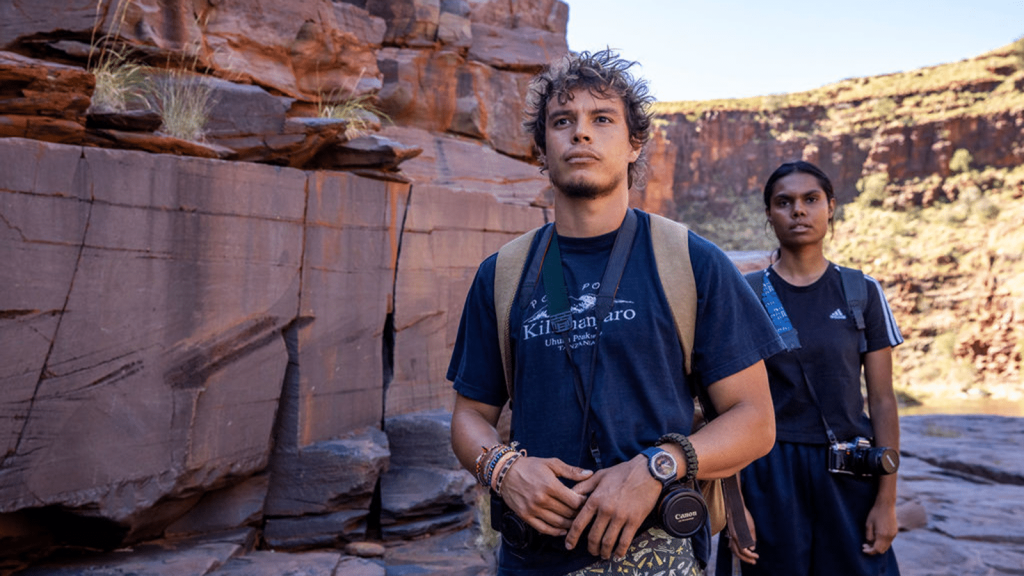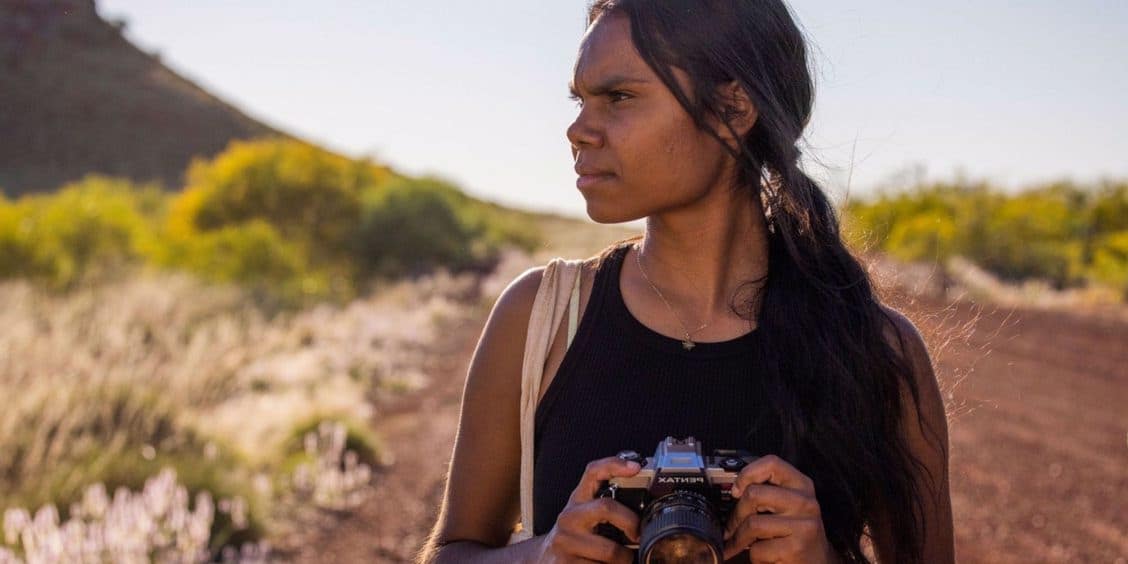Jub Clerc’s debut feature Sweet As is one of those rare films that will leave you grinning from ear to ear. From Katie Milwright’s stunning Pilbara-based cinematography, to the banger soundtrack by all-Indigenous artists, Sweet As is destined for ‘Aussie Classic’ status.
Described simply as ‘an Indigenous teenager discovers photography during a youth trip in Western Australia,’ Sweet As is a genuine must-see entry in the coming-of-age body. I had the pleasure of watching it recently at the Melbourne Women in Film Festival.
It’s no surprise that it took home the Crystal Bear in the Berlin Film Festival Generation Kplus competition over the weekend. Berlin’s Generation Kplus section awards films for their excellence in ‘exploring the lives and worlds of children and teenagers’.
Sweet As excels at presenting its teenage protagonists as fully fleshed-out human beings. Our protagonist Murra is labelled a ‘troubled youth’, but her inner world is full of hopes, dreams, frustrations, and clever insights – despite her unsafe home environment, or perhaps even because of it.
Read: Bad Behaviour review: malice, manipulation and hope
Murra is not your average ‘bored teen’. She’s an Indigenous girl from the Pilbara, and her mum’s drinking habits regularly get her thrown in custody. On the morning after a particularly outrageous bender, Murra’s mum is handcuffed to a table. Murra gets pulled aside by the police officer that has come to detain her mum. Helpfully, the officer is her uncle Ian, who suggests Murra should go on a ‘photo safari’, to get away for a bit and stay out of trouble.
The following sequence will be familiar to anyone with even the smallest knowledge of coming-of-age narratives: protagonist receives call to action, protagonist resists, mentor figure insists, protagonist reluctantly accepts. Murra goes on the photo safari with three other ‘at risk youths’: Kylie (Mikayla Levy), Elvis (Pedrea Jackson), and Sean (Andrew Wallace).
They are led by youth workers Mitch (Tasma Walton) and Fernando (Carlos Sanson Jr.), who give each of the teens their own film camera, with which they are expected to create a ‘photo story’. To Murra’s surprise, she’s a natural photographer.
Though it is formulaic, Sweet As should not be dismissed as lazy or unimaginative. Using familiar tropes in its set up, the film establishes a universal appeal to kids and teens who feel frustrated with their home life, while defining what makes Australian Indigenous youthhood different. Murra has a strong connection to her roots, and makes time to thank Country and acknowledge her ancestors when on their lands. But she also yearns to escape her family and find her autonomy as an adult.
Read: To Leslie review: addiction, poverty and a shot at redemption

That inner drive gets Murra into more than a few troublesome situations, including underage drinking, trespassing, and attempting to seduce a man much older than herself. When she cannot properly express her frustration through words, she picks up the camera.
‘Strong but shattered’ reads one of her captions as an image of the cracked red earth fades onto screen. Some would read this as cliche, but Murra is young. Such insights are profound to those crossing the threshold from childhood into adulthood.
Incredibly, Sweet As is the first WA feature film to be written and directed by an Indigenous female filmmaker. After questioning why such an outing has taken so long, get yourself to the cinema and see Sweet As (with a group of friends!) so that films like this are no longer a rarity.
Sweet As will get a nationwide release thanks to Roadshow Films later this year.
Actors:
Director:
Format: Movie
Country:
Release:





